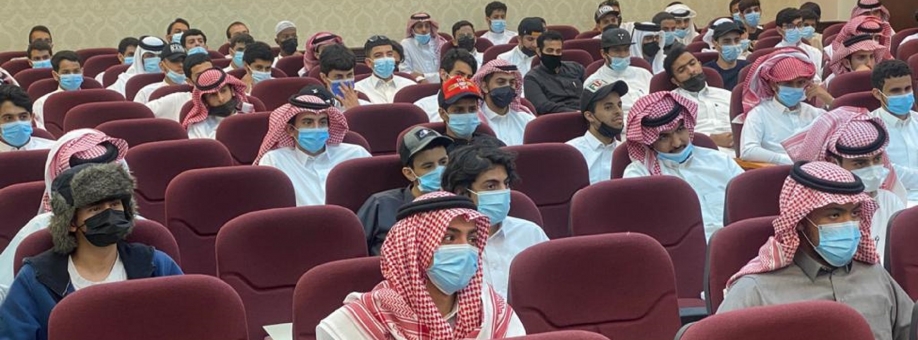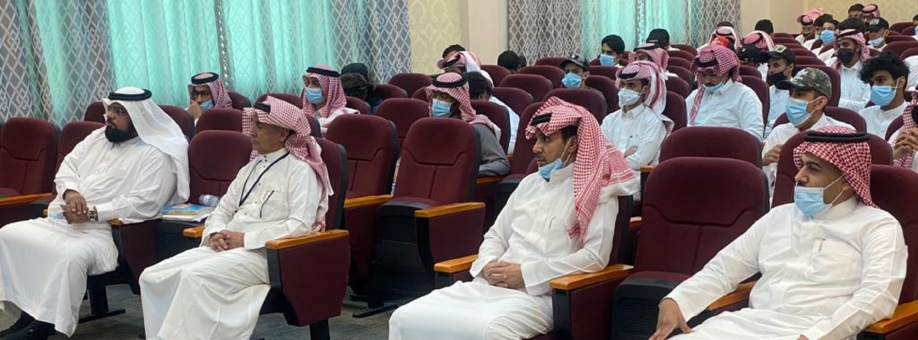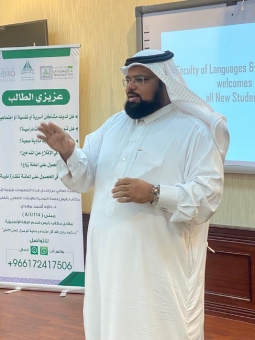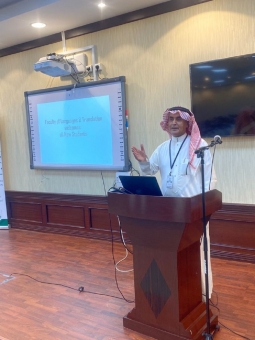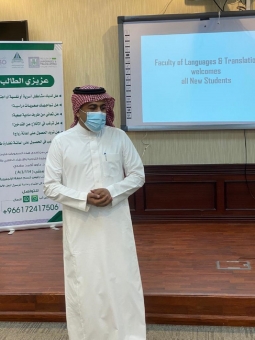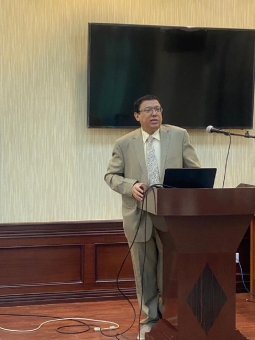From Pedagogy to Andragogy in Post COVID-19 ESP Courses: A Customized Blended Learning Model for English in Medicine at a Saudi University
Ms. Amatul Hafeez Alvi presented her research paper she had previously presented at the 1st AEJ UKI SLA Research International Conference that aimed at bringing together English language professionals from around the world to share, learn, and further the English language. Her research was titled "From Pedagogy to Andragogy in Post COVID-19 ESP Courses: A Customized Blended Learning Model for English in Medicine at a Saudi University", and was presented at a webinar organized by the Language Research Center on October 11, 2021.
Alvi began the session by talking about a customized blended learning model for teaching English in Medicine at King Khalid University. In her research, she mentioned, she had tried to address the challenges which COVID-19 posed when teaching a subject like this. She shared her experience as she had done at the conference.
Alvi highlighted how COVID-19 affects health, the public, the entire society and most importantly the education system worldwide. Many countries around the world dramatically changed their policy with regard to education to ensure the proper safety of the people involved, she added.
Alvi emphasized that the education sector was so immensely disturbed that the attendance to universities, colleges, and schools was suspended almost globally. According to statistical data in 2021 from UNESCO, more than 94% of students around the globe were affected by this pandemic. She mentioned Saudi Arabia as one of the success stories in the world when it comes to coping with the impact of COVID-19 in the education sector.
Alvi pinpointed the fact that some courses were affected severely due to this pandemic. English for specific purposes (ESP), which has an "oriented focus", is one of those affected as face-to-face mode would be more effective. Such ESP courses, she added, are completely different from EFL and ESL courses in that they primarily focus on language in context. In ESP, the learners' knowledge of English reflects directly on their profession. Her research focused on English in Medicine. In the case of ESP, she added, they actually concentrated on the transfer from Pedagogy to Andragogy, the latter of which is more learner-centered.
Alvi concluded that we need to explore more methodologies and approaches to make ESP more effective.
The webinar was very interactive and a great success with the active participation of both male and female faculty members.
Date: 10/14/2021
Source: Mohammad Adil Siddique

